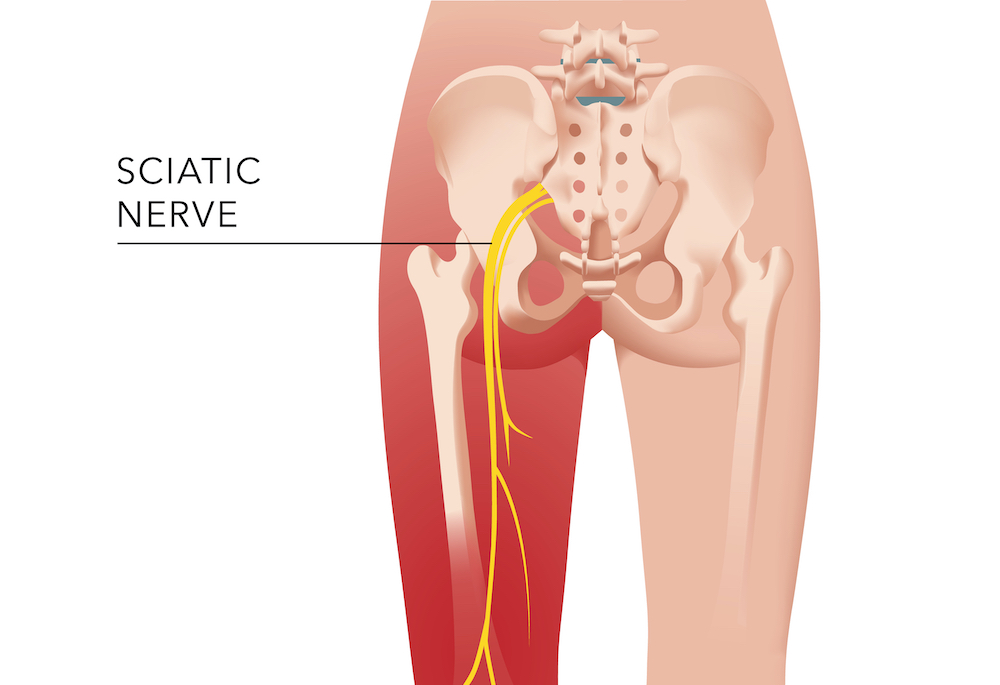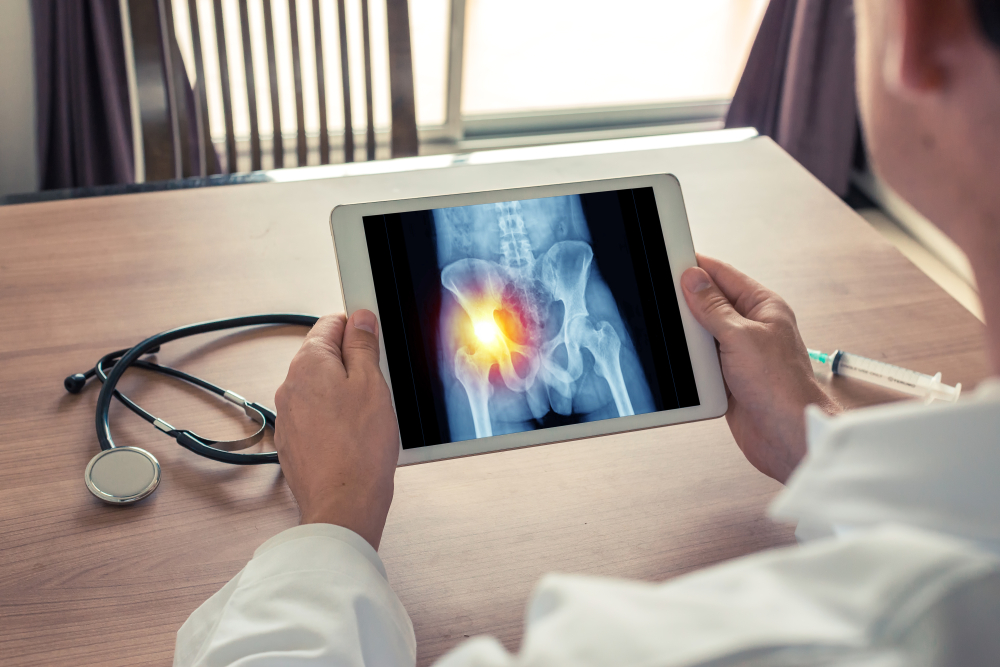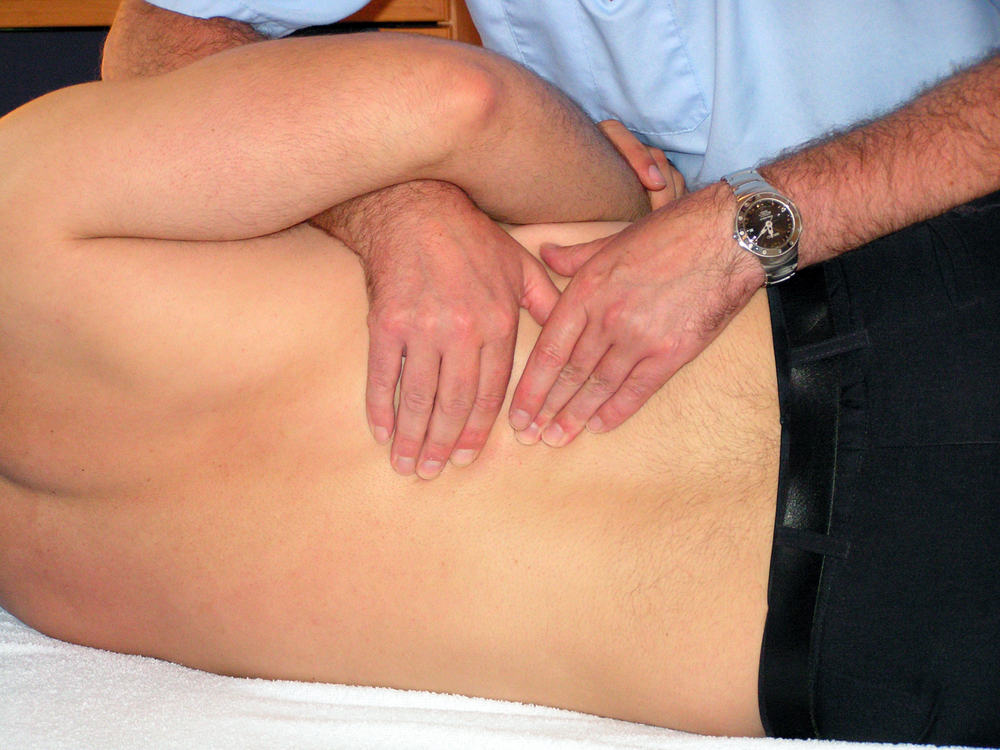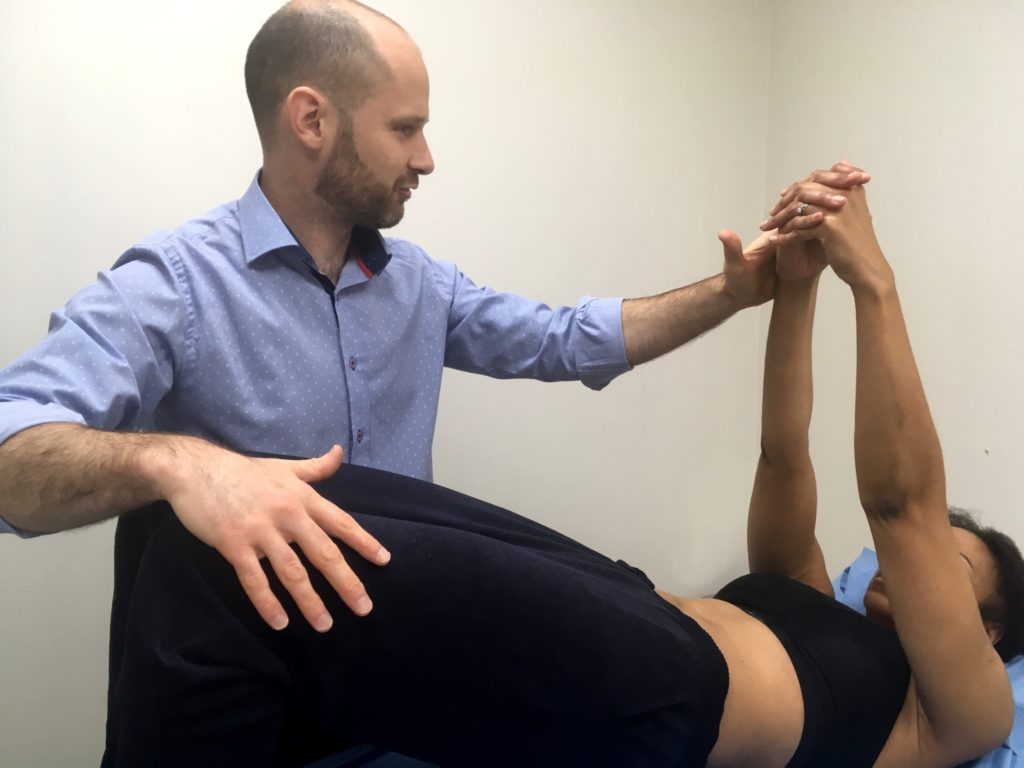Specialist sciatica treatment at our London clinic

Sciatica is the term used to describe pain traveling down the leg due to inflammation/ irritation of the sciatic nerve. The sciatic nerve is the largest nerve in the body, and leaves the spinal cord via the lower portions of the lumbar spine and pelvis area. Whilst the nerve is strong and robust and able to withstand stresses, it can become inflamed through chemical changes is the surrounding tissue, or irritated by repeated stresses (combined with other aggravating factors) then the nerve can become very painful and sensitive.
This irritation can occur through a number of different mechanisms. People often worry about disc bulges and think that the disc is compressing the nerve. This is not necessarily the case with painful sciatica. Nerves can become compressed, however the symptoms from this are not pain, but rather changes in the nerve functions, showing up as reduced sensation, strength or reduced reflexes.
There are a number of other causes of pain radiating down the leg, which are can mimic sciatica symptoms. One which is commonly misdiagnosed as sciatica is what is called somatic referred pain. In somatic referred pain there is no irritation, compression, or inflammation of the nerves. Rather pain signals from the lower back cross over with nerve fibers that affect the leg causing pain to travel down the leg. This can be thought of in the same manner as someone having a heart attack feeling pain in their arm; there is nothing wrong with the arm or the nerves that supply it, rather a crossing over of signals at the spinal cord level causing the symptoms to travel to the nearby limb.
Whilst somatic referred pain from the lower back is the most common, there are other things that can cause similar symptoms and be misdiagnosed as sciatica. These can range from problems in pelvic organs, cardio vascular changes in the leg, through to simple muscle tightness and pain in the area.
Differentiating between these different causes of the symptoms is often neglected or poorly understood, but can be extremely helpful in guiding ones treatment and effective recovery


The natural history if sciatica is very good. It normally eases with gentle movement and continuation of, or gradual return to normal activities. If disc bulges are affecting the nerve these bulges are re-absorbed and healed by the body, and nerves can become less sensitive over time. It is very rare for sciatica to be serious (though it can be initially very painful and distressing).
There are rare but serious exceptions to the above. If you have any of the following you should go to A and E
Severe pain and or numbness affecting both legs at the same time
Numbness around the saddle area (groin, genitals and backside)
Difficulty going to the toilet ie: changes in bowel and bladder
Significant or progressive weakness of the leg or foot
We offer specialist treatment for sciatica at our clinic in Holland Park, easily accessible from Notting Hill, Shepherd’s Bush, Ladbroke Grove and surrounding areas.
Booking is quick and simple using the booking system below. For very short notice appointments, you can also try us on 07958070680.
There is a great deal of research on the use of scans for sciatica and back pain. Studies clearly show that scanning is rarely useful, usually cannot tell us what is causing the pain, and can lead to worst outcomes for you the patient. There are rare cases where scanning does provide useful information, and can be an important part of your treatment. Your osteopath will be able to assess whether this is the case for you and refer you if necessary. You can read more on this subject in this blog post here.


In rare cases surgery may be required. Surgery is generally only required or useful when there is progressive loss of strength or bowel or bladder function.
If you need, or have had surgery for sciatica we can guide you through your recovery and help you get back to normal movement and activity.
We understand that sciatica can be very painful, so are always very respectful and careful during your assessment. We will start by taking a case history to find out how your symptoms started and how they are affecting you, your general health and wellbeing, your physical abilities prior to and since the onset of your sciatica and what your goals are for treatment.
We will examine the functions and sensitivity of your nerves including strength, reflexes and sensation, and mobility of the nerve. We will also look at your ability to move and perform functional tasks, as well as your ability to relax and lengthen muscles around the lower back hip and leg.
Once we understand about you and your condition we then work with you to develop an effective personalised treatment plan.


Everyone is different, and everyone has a different story of what is causing their sciatica, how it developed and affected their lives and what they want to get back to doing.
Generally speaking the most important aspects of effective treatment are desensitizing the nerve and improving ease of movement through gentle relaxed movement, and gradual progressive physical activity
Hands on therapy can be used to speed up and support the process by working to reduced inflammation, improve circulation in order to increase healing.
Sciatica, as with most forms of pain, is multifactorial and therefore it can be beneficial and effective to recovery to address other contributing factors that feed into the pain. These can include sleep, nutrition, stress, postures, habits and activities. Your osteopath will work with and guide you through this as part of your treatment and recovery plan to help you get back control of your symptoms, reduce pain and get back to doing the things that you love.

Gavin Smith MSc is an experienced Osteopath, Clinical Director of the Holland Park Osteopathic Practice, and lecturer and Clinical Supervisor at the London School of Osteopathy. He has worked with some of the UK’s top martial artists and sprinters, and also has an extensive background as a sports therapist and exercise coach.
Booking is quick and simple using the booking system below. For very short notice appointments, you can also try us on 07958070680.

Web design by Market Your Clinic Online